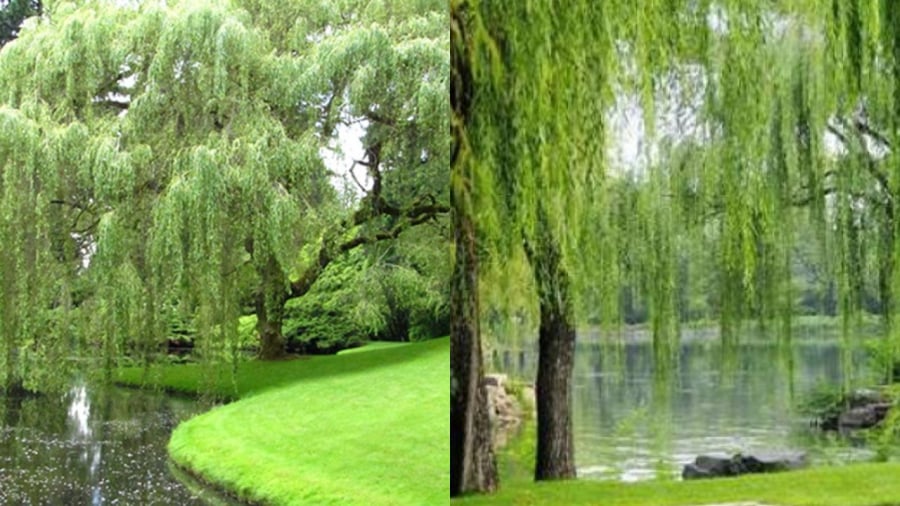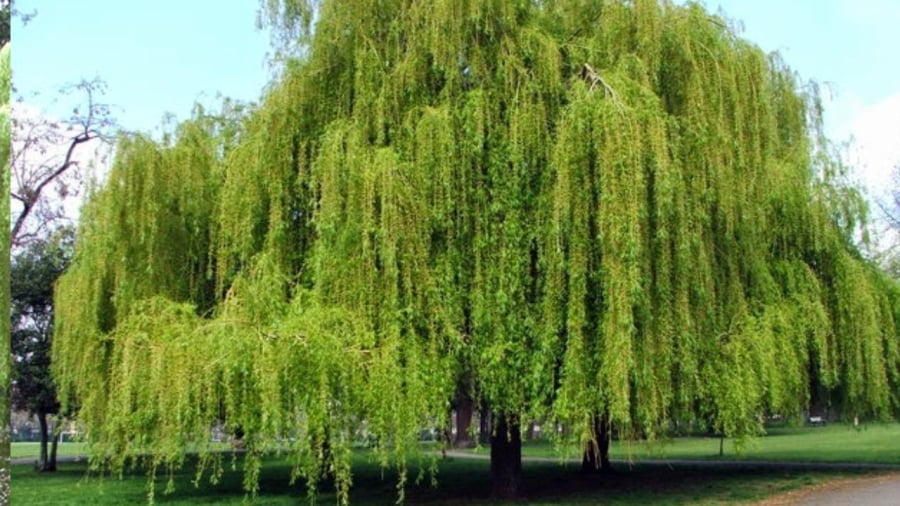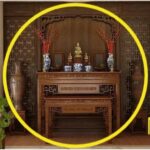Willow Trees by the Lake: Creating a Scenic Landscape
The presence of willow trees beside a lake is a classic feature of ancient urban landscapes. Willow trees, though woody in nature, have a small stature with a wide-spreading canopy of drooping leaves. The dense, dark green foliage of the willow tree hangs low, creating a graceful and delicate appearance.

Willow Tree by the Lake: A Romantic Scene
The reflection of the willow tree on the lake’s surface adds a touch of poetry and romance to the scenery. In ancient times, literature and poetry often evoked a sense of melancholy. Thus, planting willow trees by the lake was considered an art form, evoking emotions and enhancing the beauty of the surroundings. The drooping branches of the willow tree are believed to symbolize a pensive, sorrowful maiden, deep in thought and longing for her lover.
Willow trees are easy to grow and care for, requiring minimal maintenance while thriving in moist conditions. Their adaptability and resilience make them an ideal choice for creating a lush, green urban landscape without demanding excessive attention or resources.
Why You Should Avoid Planting Willow Trees in Front of Your House
Willow trees are believed to bring negative energy, or “yin,” due to their drooping leaves. In contrast, a house is expected to exude positive energy, attracting wealth and prosperity. The drooping nature of the willow tree’s foliage is thought to symbolize a decline in fortune and prosperity. According to feng shui principles, trees with upward-growing foliage are considered auspicious, bringing good luck and abundance.

Willows and Their Impact on Emotions and Superstitions
Ancient cultures placed great importance on the spiritual and symbolic significance of trees in the home. When selecting trees to plant around the house, it is crucial to consider their meaning and characteristics. The tree in front of the house, in particular, should symbolize abundance and good fortune. Unfortunately, the willow tree, with its drooping branches, is believed to bring sadness and negatively impact relationships.
Willow trees are best suited for lakesides, where their drooping branches find harmony with the water. In contrast, the interior of a home tends to favor upward-growing energy. Planting a willow tree indoors may create an aesthetically displeasing and unbalanced environment. Additionally, without water to reflect its beauty, the willow tree may fail to evoke the desired sense of romance and poetry.
Reference material for further exploration






































